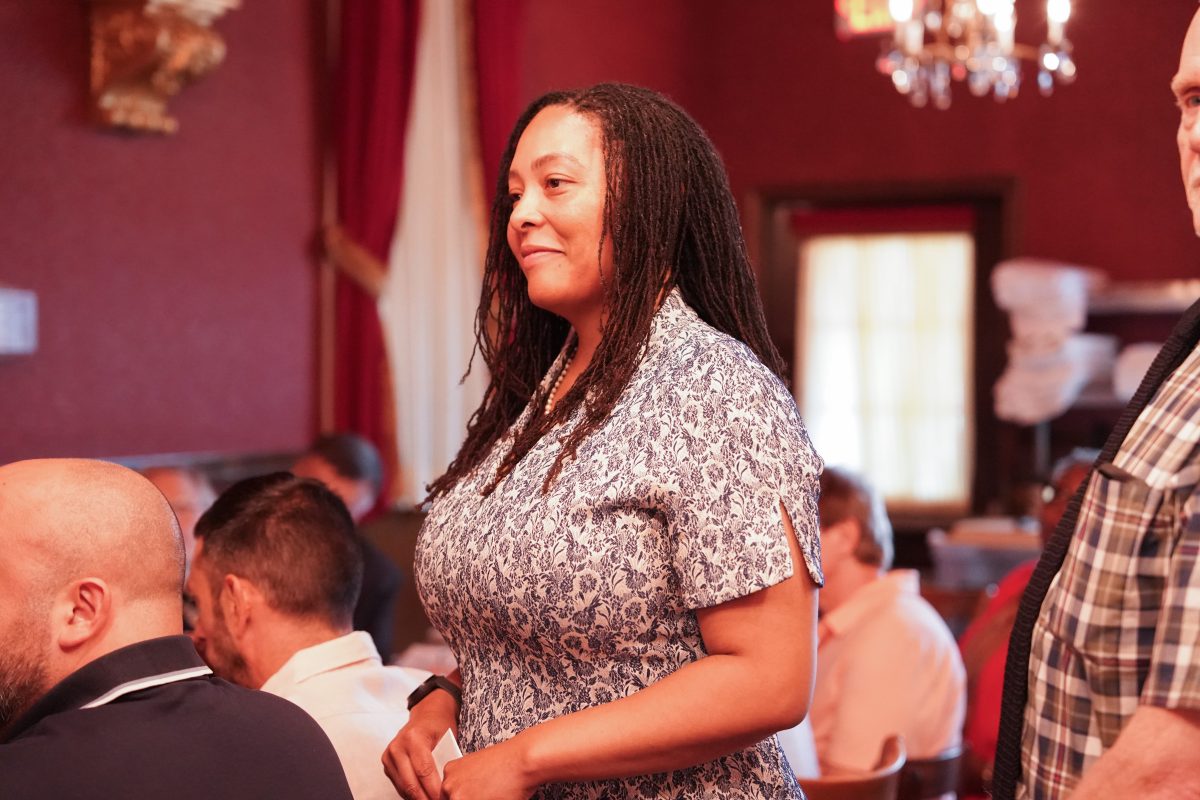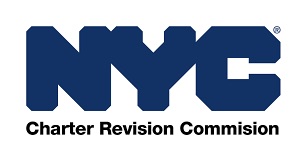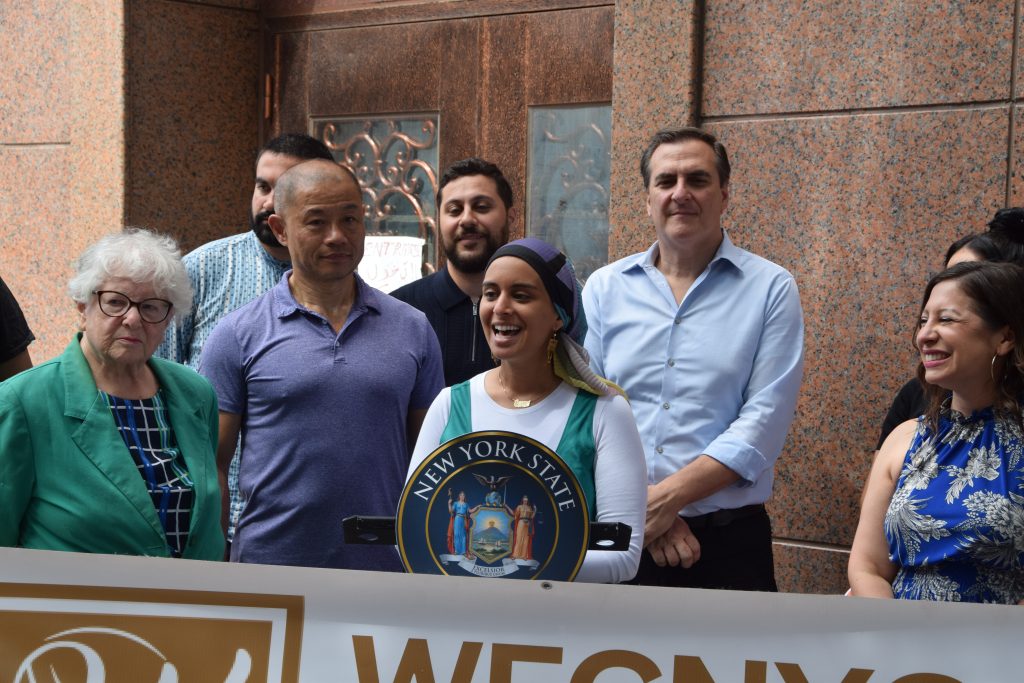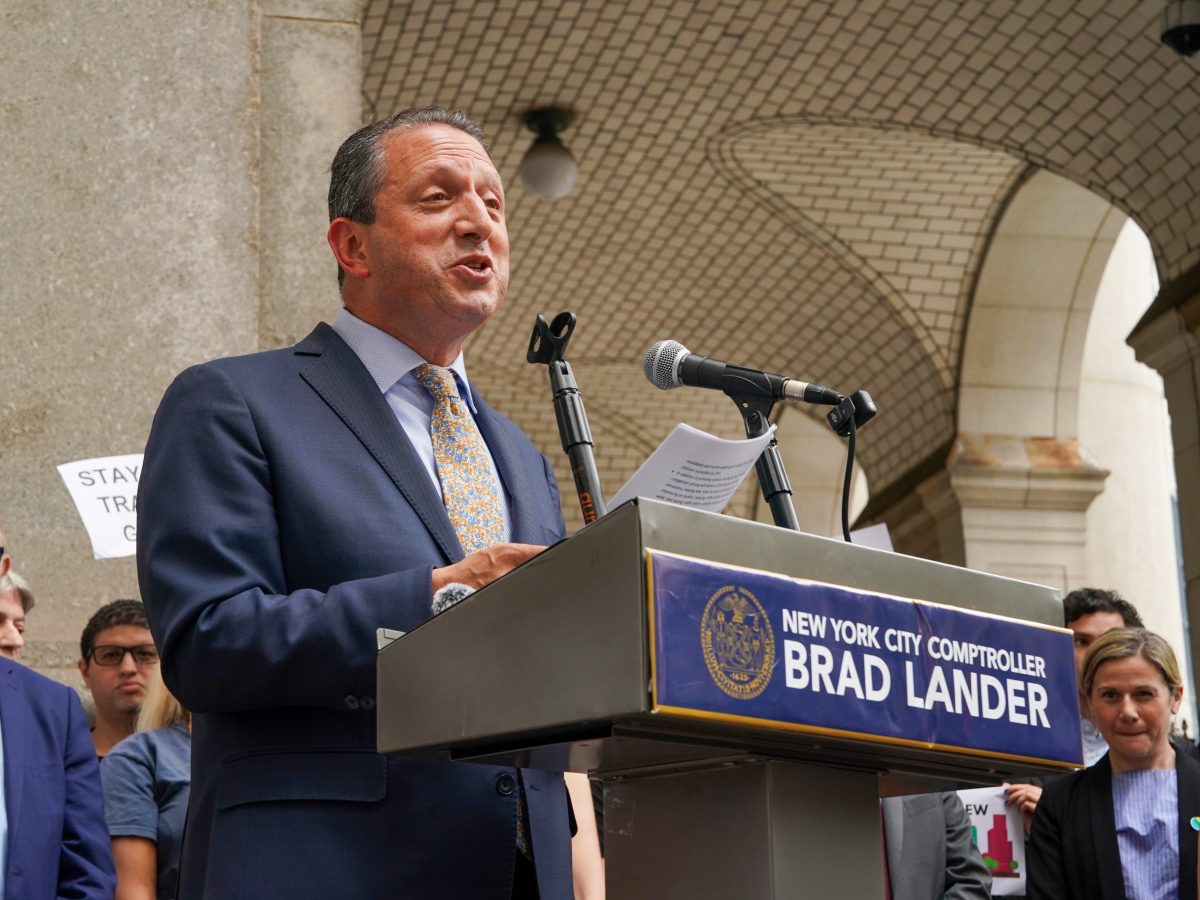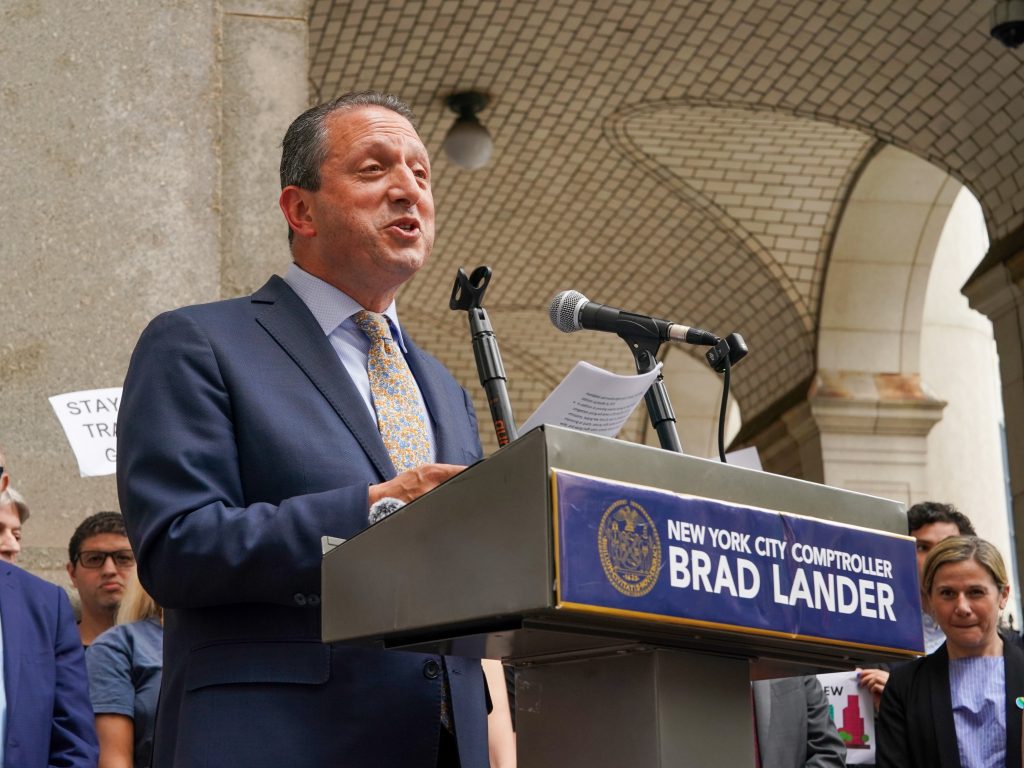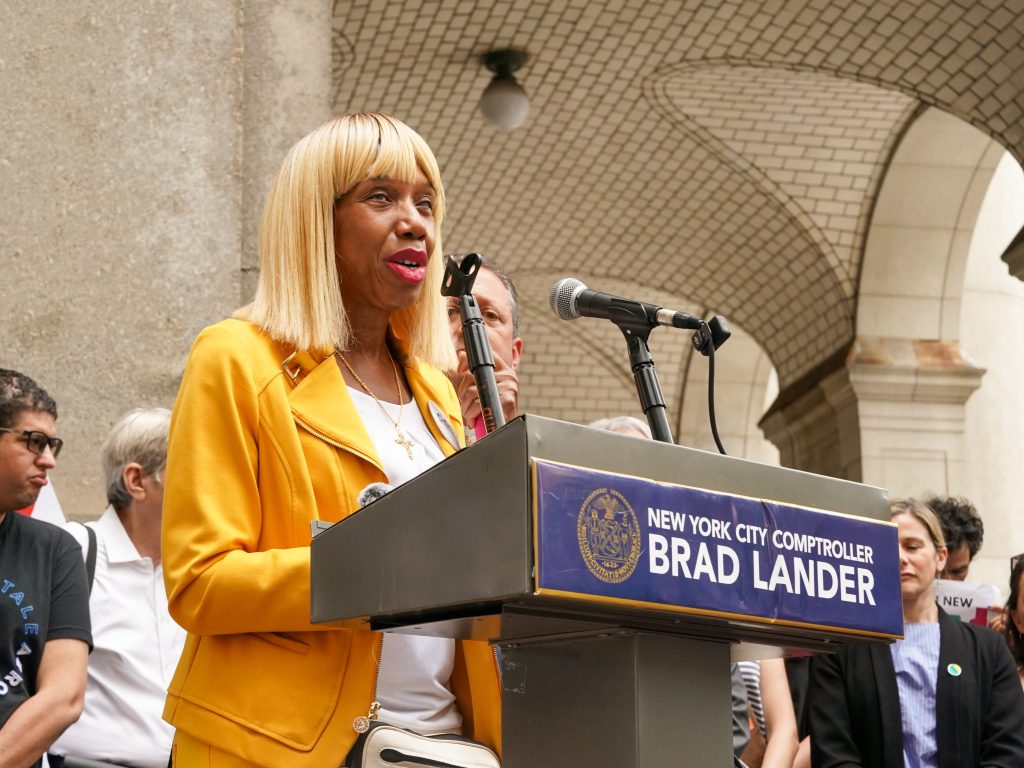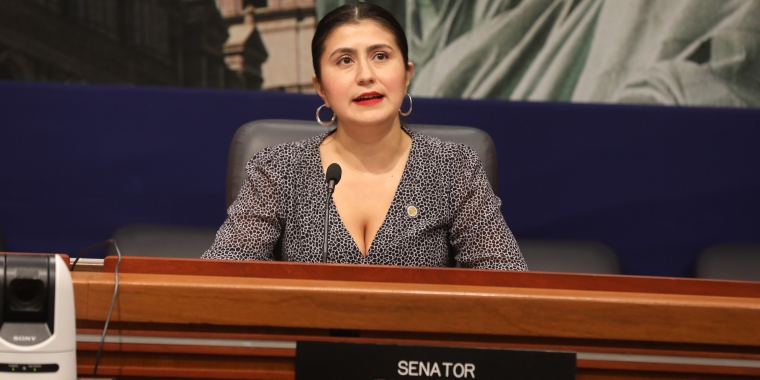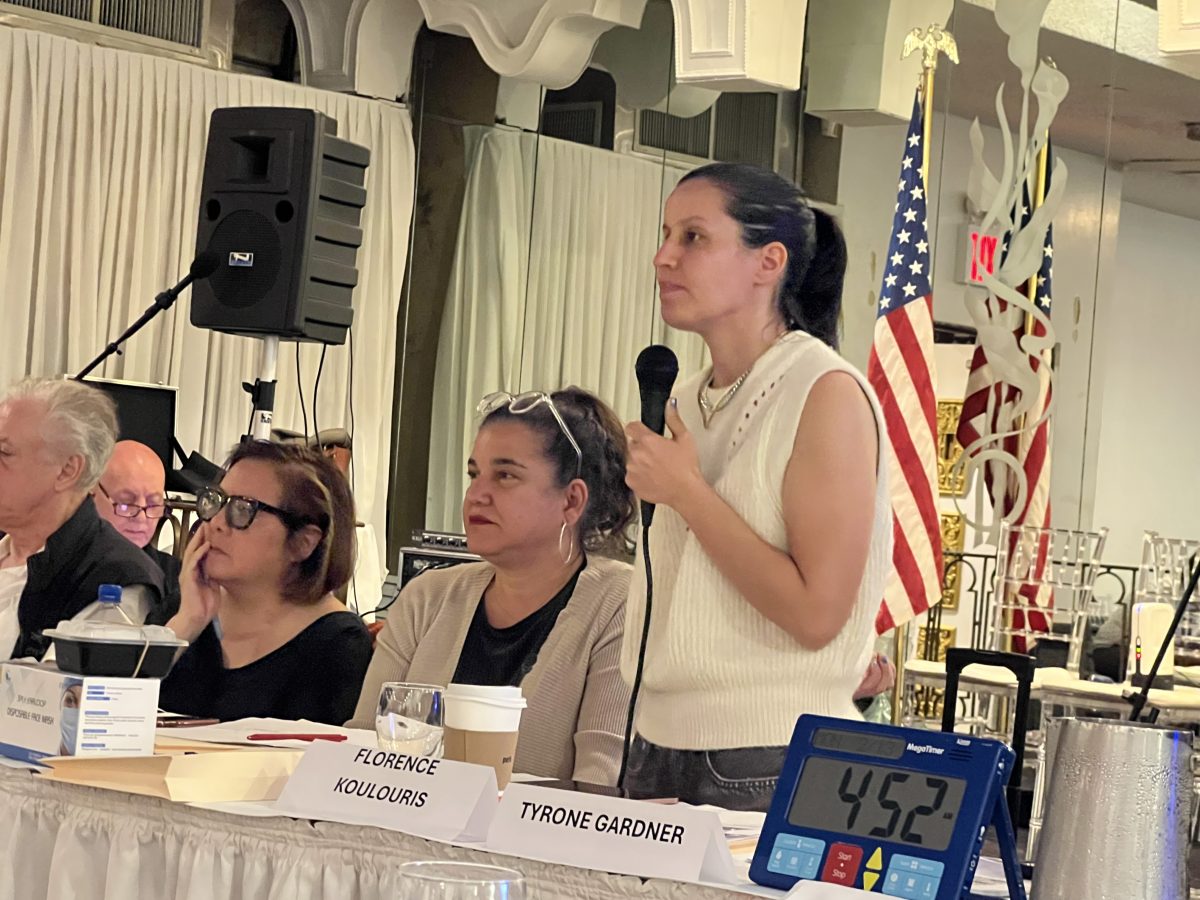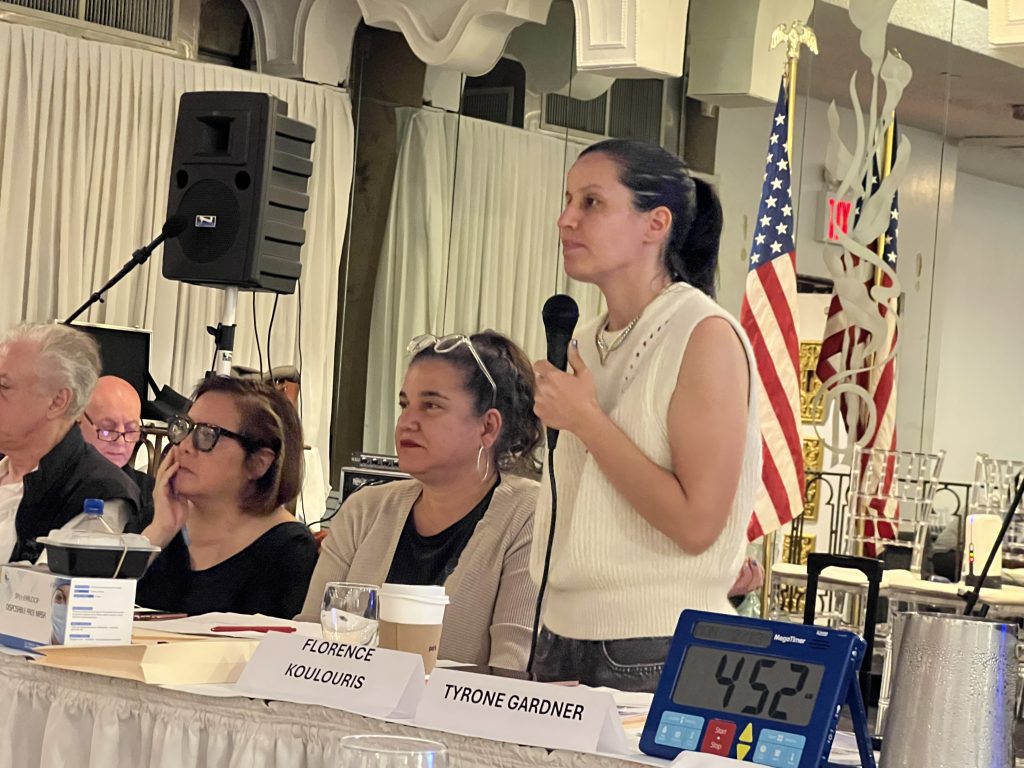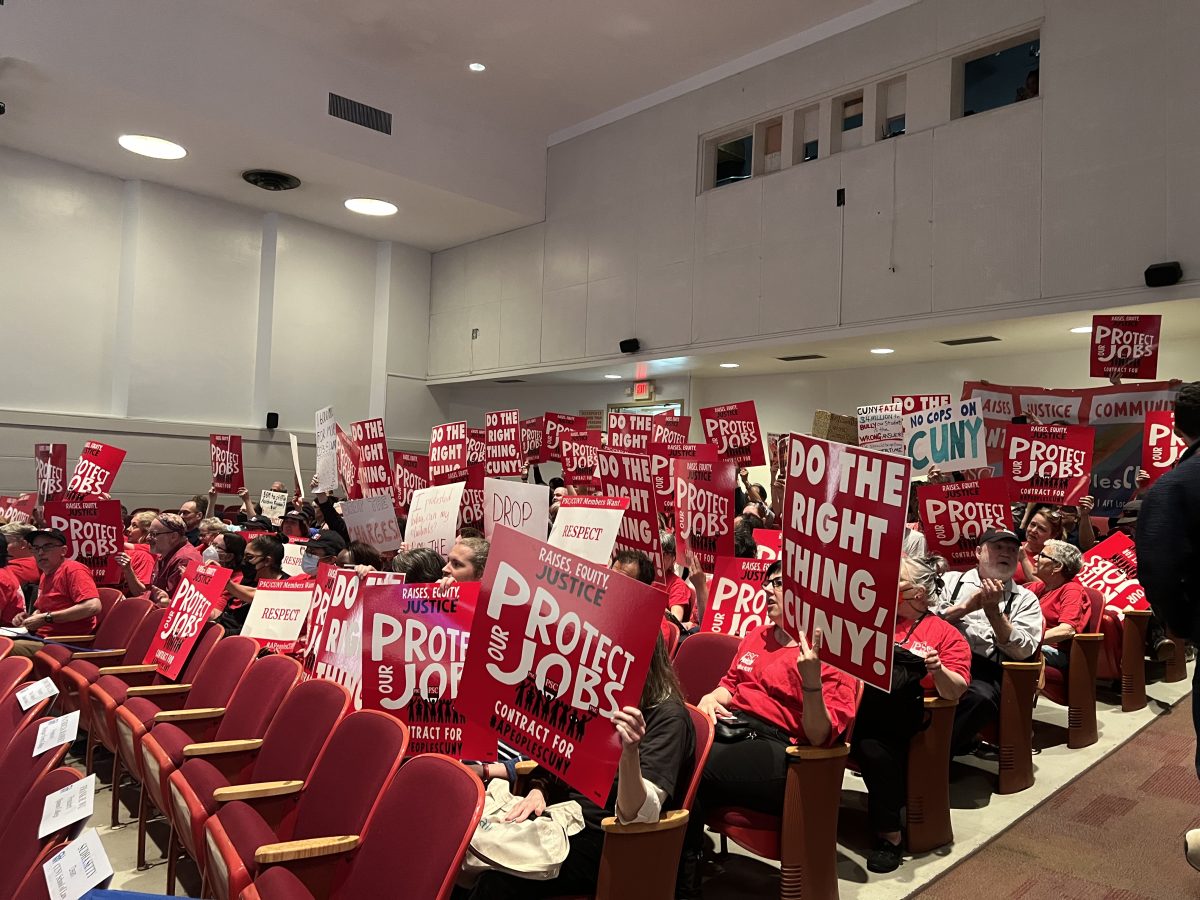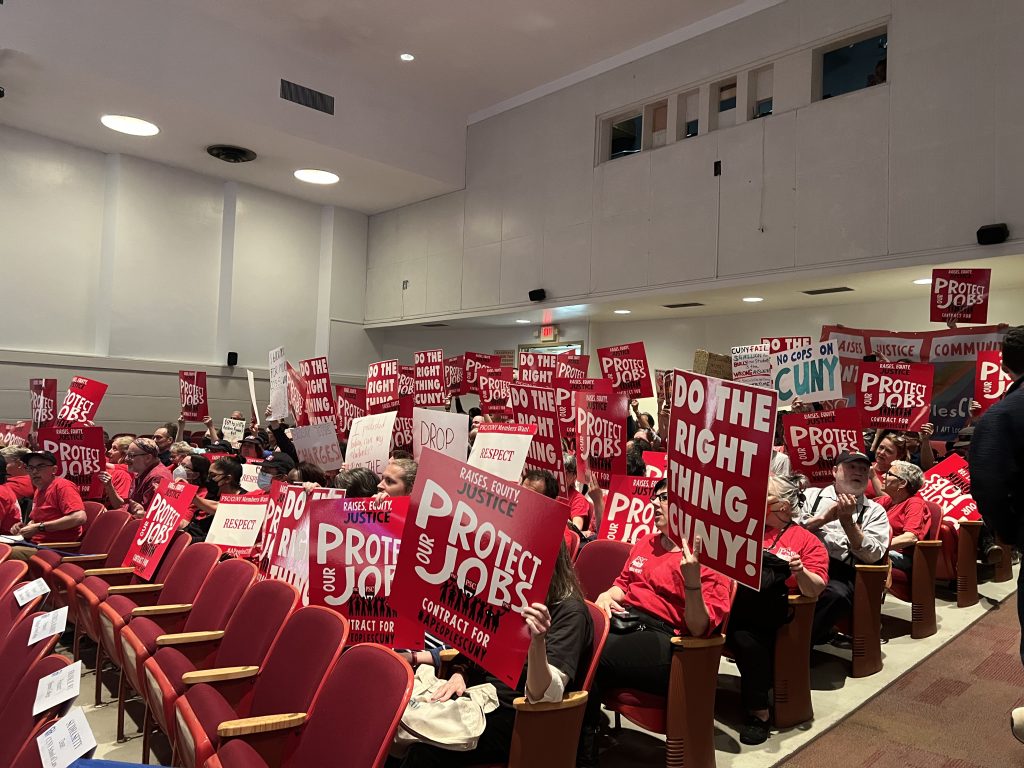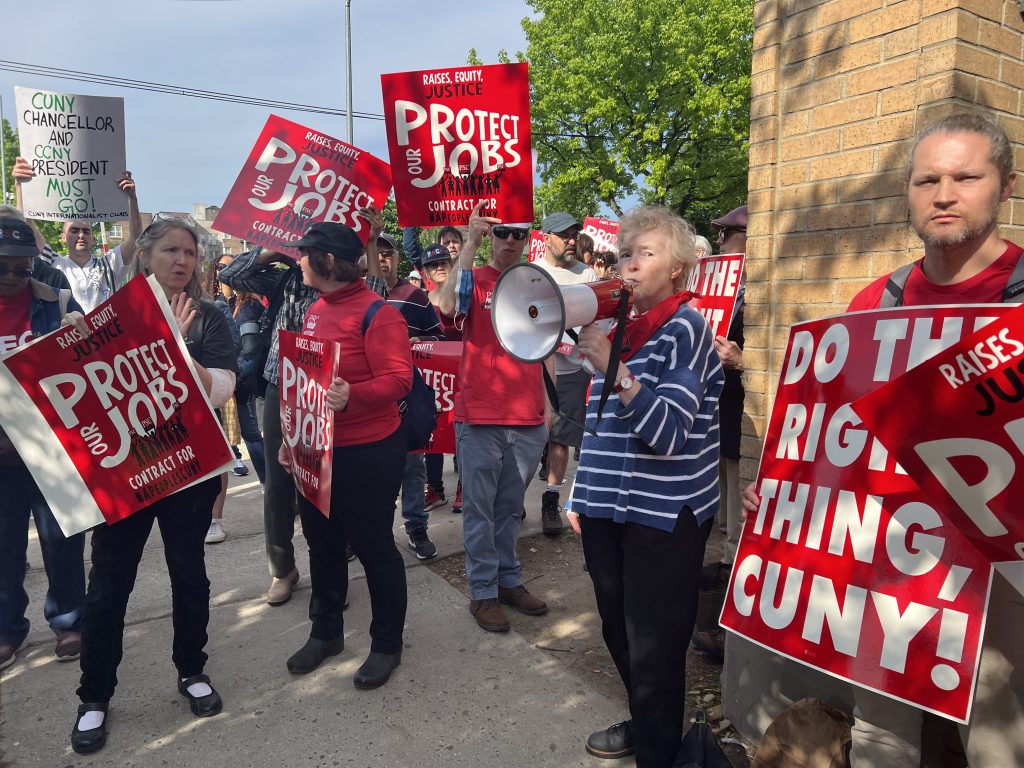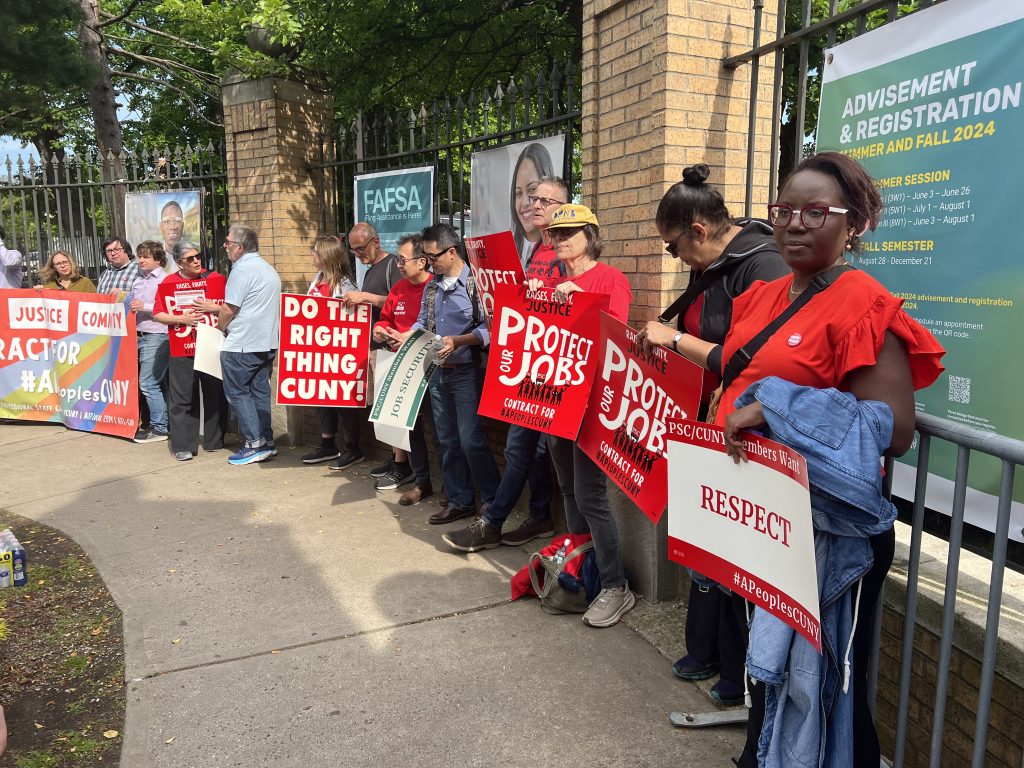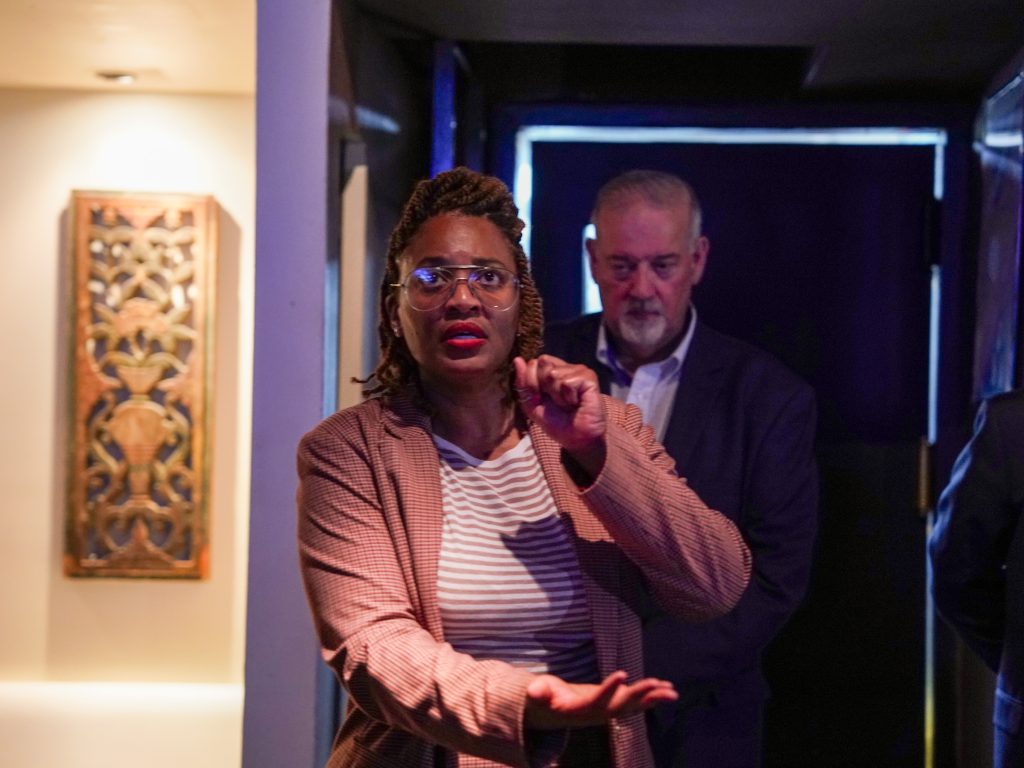Surrogate Court Candidate Awarded for Service

Judge Cassandra Johnson received the St. Thomas More award at Bamonte’s Restaurant in Greenpoint, Brooklyn.
By Jean Brannum | jbrannum@queensledger.com
In Greenpoint, Queens Surrogate Court judge candidate Cassandra Johnson accepted the Bishop Ignatius Catanello Memorial St. Thomas More Award on July 17.
At Bamonte’s Restaurant on Wither’s St, Catholic leaders and members of the Diocese of Brooklyn gathered to praise Johnson’s dedication to serving the community through mentorship and her track record as an attorney. Johnson is one of the candidates for Surrogate Court judge.
Thomas Principe, the first recipient of the St. Thomas More award and a St. John’s University School of Law alumna, introduced Johnson and explained how St. Thomas More’s accomplishments as a lawyer compared to hers.
“She is receiving an award named for a man who had the courage to suffer the contempt of the world he lived in, an award named for a soldier of faith, who was an attorney,” Principe said.
St. Thomas More was a lawyer and member of King Henry VIII’s inner circle who was later beheaded for refusing to recognize the king’s marriage to Anna Boleyn. This act would defy the Pope’s ruling that the king could not divorce the previous wife, Katherine of Aragon. Before More’s demise, he wrote the first recorded argument for free speech laws and brought back record-keeping during Henry VIII’s reign.
Principe highlighted Johnson’s time as a mentor for young people and volunteering as an arbitrator in Small Claims Court, which saved litigants legal fees by solving their disputes amicably.
Johnson, who is also a St. John’s alumnae, spoke about how her Catholic faith has helped her as an attorney and a judge in her acceptance speech. She arrived at Bamonte’s straight after hearing cases for the Queens Supreme Court.
“To me, being a good lawyer means you are acting in service to God,” Johnson said. “You help people through a difficult time in their lives, you seek to provide justice, you try to find solutions to complex problems.”
Andree Johnson, Johnson’s mother and another St. John’s alumnae, the ceremony as well. Johnson praised her mother for being her first “legal teacher” and supporter.
Johnson beat her democratic opponent Wendy Li, during this year’s Democratic primary elections. Voters will choose between her and republican Stephen Weiner for the Surrogate Court judge position in the general election.
Read more about Judge Cassandra Johnson on Queensledger.com



